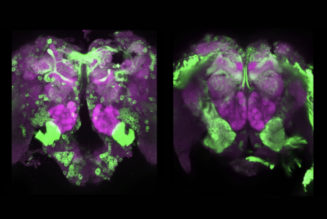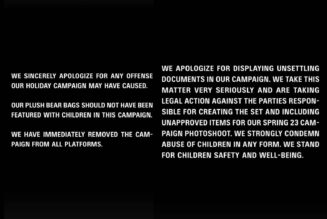
The new book My Life with the Jedi forges a surprising alliance between Star Wars and St. Ignatius of Loyola.
In Star Wars: A New Hope, the evil Darth Vader tells an admiral who doubts his abilities in the Force: “I find your lack of faith disturbing.” As it turns out, when it comes to faith and Star Wars, Darth Vader was onto something.
As the new book My Life with the Jedi shows, Star Wars and spirituality have much more in common than one might think. Indeed, there are many deeply spiritual lessons to be gleaned from the various Star Wars films, books and miniseries that have long been a mainstay in pop culture.
Fittingly released on May 4 (aka Star Wars Day), the book is divided into three sections that dive into various principles of Ignatian spirituality and show how the stories from Star Wars not only illuminate profound spiritual truths, but also provide a solid plan for incorporating them into our lives. The battles we face in life may not be as dazzling as the lightsaber duels of the Star Wars films, but St. Ignatius of Loyola provides grounded tactics that parallel the teachings of the Jedi and help with overcoming those Phantom Menaces that keep us from being who God created us to be.
Author Eric Clayton is a lifelong Star Wars devotee, and currently works as the deputy director of communications at the Jesuit Conference of Canada and the United States. He fondly remembers watching the original Star Wars on VHS as a youngster, which sparked a passion for the beloved science fiction franchise that endures to this day.
To a young child, there is much about Star Wars that is captivating to the imagination: Spaceships and space battles, lightsabers and light speed, and the eternal struggle between the light and dark sides of the Force. Growing up in a Catholic household, it was the mystical element of the Force that resonated most acutely with Clayton, especially as it pertained to the Jedi, who are the “good guys” and peacekeepers of the Star Wars universe.
“I think it was this idea that the source of authority that [the Jedi, who] are peacekeepers also lean on something spiritual. Not just the strength of their blade, but their own contemplative practices and understanding of greater purpose and common good,” Clayton explained. “That theme is essential, and I think that hit me as a young person.”
Clayton draws out and expounds upon these themes in My Life with the Jedi, and further elucidates the clear links between the Jedi order and Christian spirituality as informed by the teachings of St. Ignatius. One of the primary principles he leads with is that, like the Force, God can be found in all things, albeit in a much more personal and profound way.
“There’s that famous quote about how the force’s energy binds all the old and living things together,” Clayton said. “But there’s actually a wonderful essay by a Jesuit priest in Milwaukee who talks about how important it is to say that God is in all things, just like the Force, but God is personal and intimately invested in our own success and development, whereas the Force is not. So there’s that invitation to go in and expand on how God is like the Force, but God is so much more.”
Another key Ignatian principle that Star Wars consistently taps into is the discernment of spirits — seeking God’s wisdom to discern which promptings come from his divine goodness, and which ones are from the enemy. Much like the struggle between light and dark in Star Wars, turning away from God through sin leads us toward the dark, but by seeking his mercy and turning back toward him and his will for our lives, we can walk in the light as the Jedi do.
“Ignatian spirituality is all about discerning between two spirits — evil spirit and a good spirit,” Clayton explained. “And that’s a whole Star Wars thing, but what Star Wars is getting better at, and Ignatian spirituality has known all along, is that we all find ourselves somewhere along the spectrum of things. We don’t make good decisions every day of the week, but we’re always called to turn back to look at what we’ve done. Where have we fallen astray? How can we make better decisions? That’s what Star Wars is showing us more and more — characters who are really trying to struggle towards the light.”
Building upon this principle, Clayton provides a set of questions for reflection, called Wayfinder Exercises, that are based on the Ignatian principle of the daily examen. The book also invites readers to place themselves in the Star Wars stories and see which lessons for their own lives the spirit might be leading them to — a practice that echoes the Ignatian principle of contemplative prayer. The chapter about the cave on the swampy planet of Dagobah, where Luke Skywalker trains with Master Yoda, is one example Clayton likes to use to illustrate this point.
“If we put ourselves in the story, which is very Ignatian, and allow the story to speak to us, what do we find?” Clayton inquired. “Instead of just saying, ‘Oh, the cave in Dagobah is just like the cave in Ignatius’ story!’ Those are good parallels and it’s a good entry point, but what more happens when we allow the spirit to speak to us through these stories?”
More than just connecting the dots between Star Wars and spirituality in a tangible way, Clayton’s ultimate hope for My Life with the Jedi is for readers to see how God can indeed be found even in that galaxy far, far away — and that the fictional Jedi have more to teach us about faith than we may have realized.
“For a Christian Catholic person of faith, and certainly someone in the ancient tradition, this book is going to give you a new way to think about engaging pop culture and Star Wars in particular, and also hopefully expose you to all sorts of new Star Wars lore without making you dizzy,” Clayton concluded. “But on the other side, I’ve had this experience with a lot of folks who are not Christian or perhaps even antagonistic, who enter the faith through their love of Star Wars and then encounter God anew, and that’s what I’m really excited about.”








